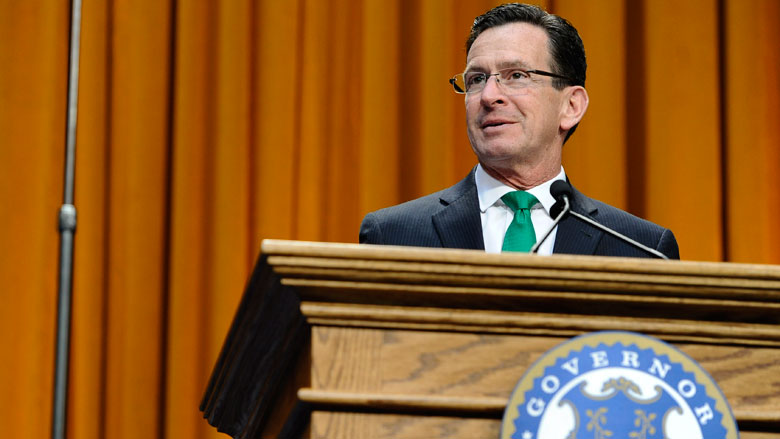Connecticut jobs tax will hurt workers
By Suzanne Bates | March 24, 2016, 6:31 EDT
 Connecticut Gov. Dannel Malloy (Flickr)
Connecticut Gov. Dannel Malloy (Flickr) A new tax on entry level jobs has residents in Connecticut wondering how their lawmakers plan to spur economic growth when they’re passing bills that show hostility to employers.
A bill voted out of committee in Hartford last week would levy a $1 tax on every hour worked by a person who earns less than $15 an hour. The tax would only apply to employers with more than 500 employees.
Supporters of the tax – dubbed the “working class tax” – have apparently never heard the economic principle that when you tax something, you get less of it.
In this case, the “less of” would apply to jobs – leading to another blow to the Connecticut economy, which it can hardly afford.
Last year, it appeared that the state’s job market was finally starting to pick up steam after a very slow recovery from the 2008 recession. Gov. Dannel Malloy practically shot off confetti cannons when he announced in December that the state had finally recovered all the private sector jobs it lost during the recession.
But Malloy spoke too soon.
Earlier this month the national Bureau of Labor Statistics said that while the state claimed it had added almost 27,000 jobs last year, it actually added only 12,200 jobs.
Besides revealing what is apparently a very broken jobs-counting system, this revision also shows the underlying weakness in the state’s economy, which is still reeling from the imposition of two of the largest tax hikes in state history over the past five years.
And so, what do lawmakers in Hartford propose to get the economy back on track? A tax on jobs.
Supporters of the working class tax – a coalition of labor unions and other liberal policy groups – claim that companies like Wal-Mart and Target owe the state money for the public benefits their employees use, like Medicaid and food stamps.
Think about that logic for a moment – supporters of the tax believe that a company should be penalized for bringing jobs to Connecticut, that a company should be fined for paying a legal wage, and that the company is responsible for the choices its employees make.
This open hostility to free enterprise is what put Connecticut in the situation it is in now – tepid job growth, a sputtering economy, and a state budget that is terribly out of balance.
No other state levies a tax like this – for a reason.
The supporters’ own study shows the state will lose up to 1,500 private sector jobs if this tax is implemented, an estimate that is likely on the low end. But apparently those jobs don’t matter – which is probably news to the people who have those jobs now.
That thinking is wrong. All jobs matter.
This tax would hurt the people it supposedly sets out to help. It would lead to the elimination of entry level jobs, whether because companies choose not to come to, or grow in, Connecticut, or because the companies move toward automation.
So then why are supporters of this tax pushing so hard for it? There is another reason – because it would be a windfall for the state.
Estimates of how much money the tax would raise for the state’s struggling general fund run from $100 million up to $300 million – something likely not lost on the state’s public sector unions, who are working very hard to convince lawmakers to push it through the legislature.
Some say this is a backdoor way to push companies toward a $15 an hour minimum wage. The problems with a $15 minimum wage, including the loss of entry level jobs, are well known, but at least when the minimum wage goes up the money ends up in the pockets of some workers.
Some lawmakers seem to recognize that – including Democratic legislator Michelle Cook, who said she thinks the $1 per hour should go to workers instead of the state. But then she voted for the bill.
What lawmakers like Cook don’t seem to understand is the chill that legislation like this sends through the business community. Even if it doesn’t become law this year, that an idea like this could gain enough traction to pass through committee is alarming.
Connecticut lawmakers need to re-focus on economic growth. The working class tax moves us in the wrong direction.

Suzanne Bates
Suzanne Bates is director of policy and legislative outreach at the Yankee Institute for Public Policy, a free-market think tank based in Hartford, Connecticut.
NBPEconomic










